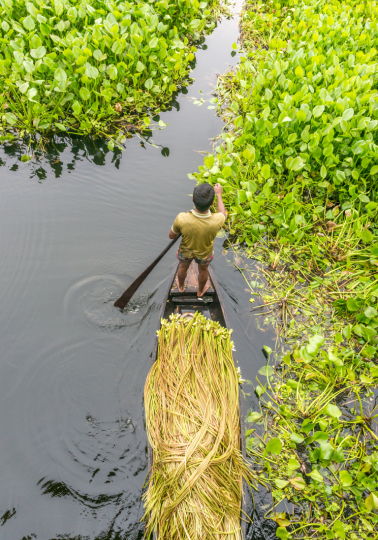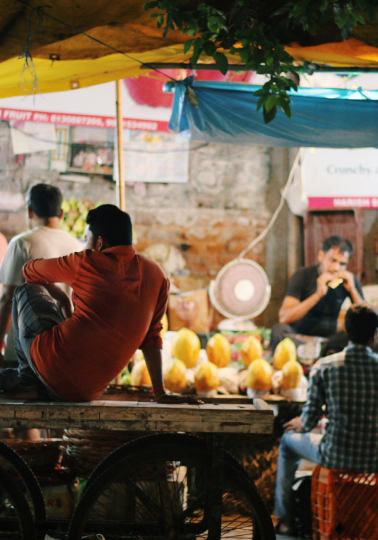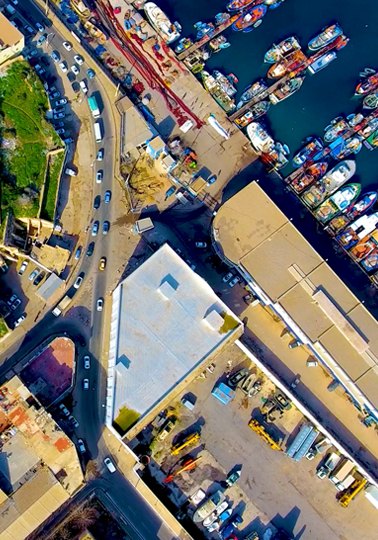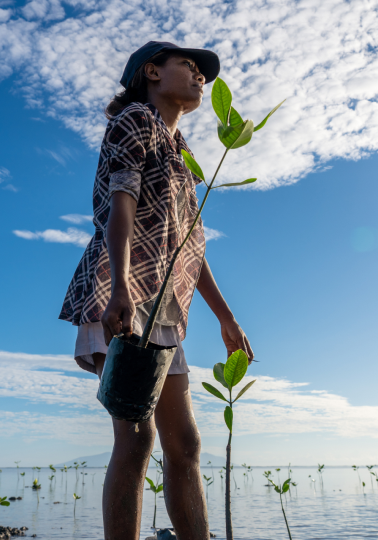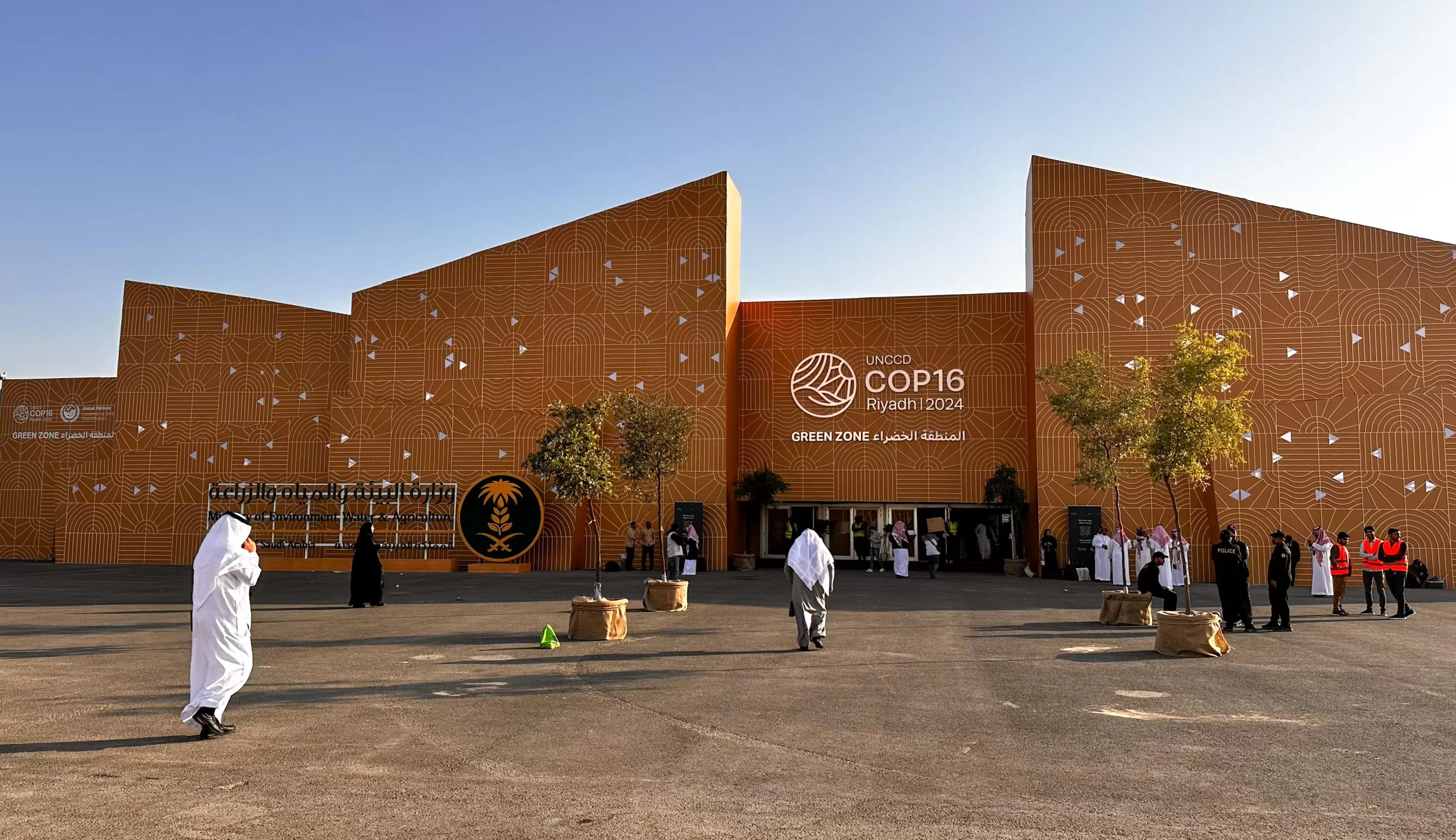UNCCD COP16: Financial Resilience Takeaways
Nearly 200 countries were involved in negotiations to address desertification, land degradation and drought (DLDD) at the 16th session of the Conference of the Parties of the United Nations Convention to Combat Desertification (COP16). Parties were unable to reach consensus over a new drought framework, adopting a procedural decision to build on the progress made at COP16 Riyadh and establish the drought framework at COP17 in Mongolia in 2026.
COP16 has mobilised US$12 billion to support vulnerable countries, but addressing (DLDD) requires US $23 trillion by 2050. Financing sustainable farming for resilient crops, healthy soil and ecosystem protection alongside technology transfer and innovation to support small-holder farmers’ were at the core of the discussions. Despite rising risks and the central role that insurance and risk finance must play in building the missing financial resilience – they appeared largely absent from the solutions and agenda for action.
5 Key Announcements:
- US$2.15 billion pledged towards the Riyadh Global Drought Resilience Partnership (RGDRP) - The OPEC Fund (US$1 billion), IsDB (US$1 billion), Kingdom of Saudi Arabia (US$150 million) – UNDP will have integral role in the partnership.
- The Arab Coordination Group committed up to US$10 billion by 2030 to address land degradation, desertification, and drought.
- Riyadh Action Agenda and International Drought Resilience Observatory launched by Saudi Arabia to strengthen Middle East Green Initiative, Africa Great Wall, RGDRP, or new initiatives.
- Announcement of a Global Takaful Alliance to increase the financial resilience of 100 million people by 2030. More information below.
- Groundwater Access Facility for Africa announced a US$2 billion initiative for water solutions in Horn of Africa and Sahel – UNDP has pledged US$2 million for Somalia.
Financial Resilience Highlights:
Focus on market mechanisms such as insurance, KPI-linked debt and microfinance as critical tools for drought resilience
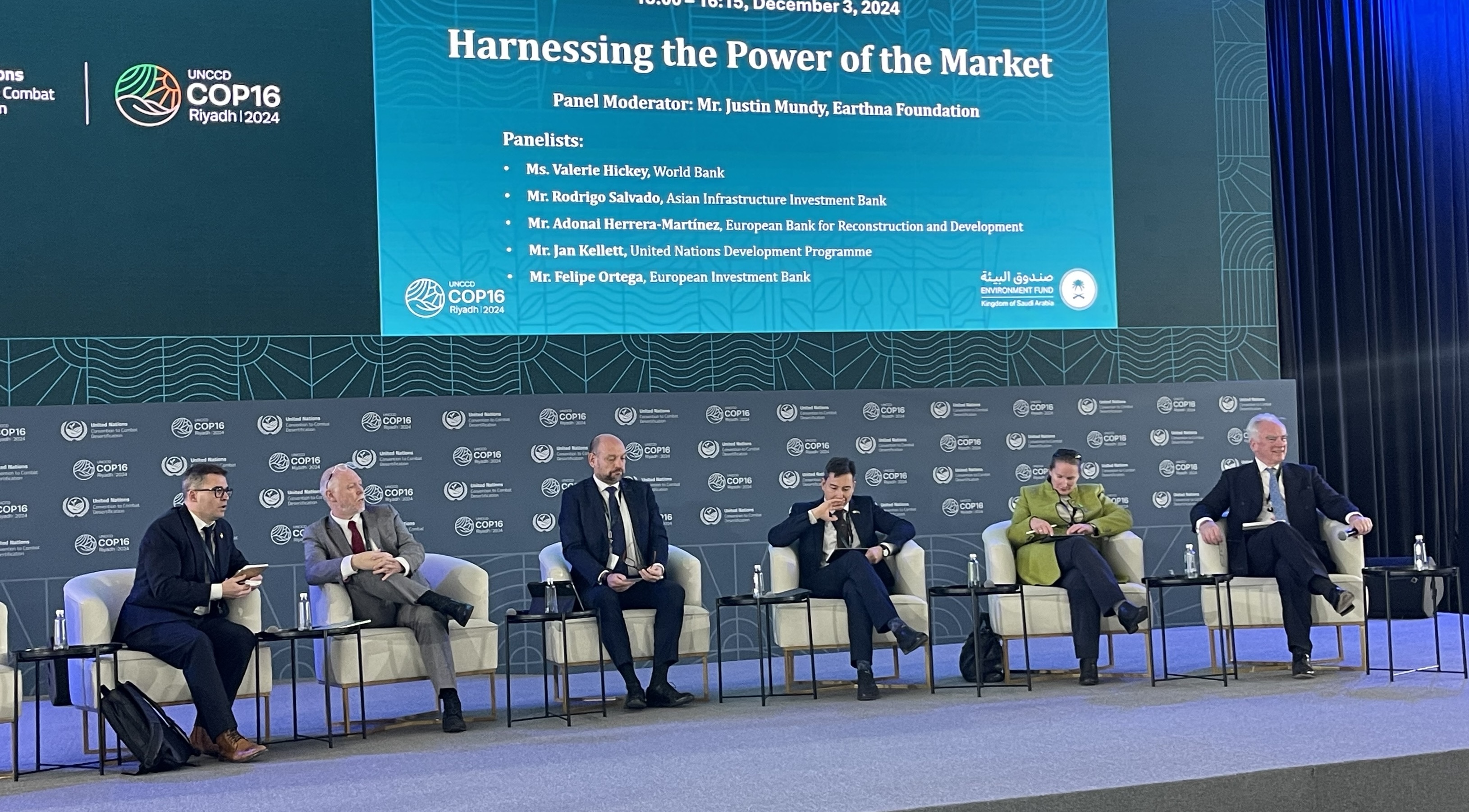
Image: High-level UNCCD COP16 Panel Discussion on ‘Harnessing the Power of the Market’
Opportunities to develop and deploy innovative financial instruments took centre stage in COP16 discussion, with significant attention on financial solutions for farmers, agricultural communities and value chains exposed to drought and desertification.
In a keynote address at COP16, UNDP Administrator Achim Steiner highlighted the need for US$23 trillion by 2050 to address desertification, land degradation, and drought.
A high-level panel ‘Harnessing the Power of the Market’ examined how financial instruments can mitigate risks and incentivize sustainable practices. At this session, UNDP’s Jan Kellett articulated the need to prioritise and scale financial risk management solutions such as insurance and Takaful. He added that the lack of focus on financial resilience is a threat to the viability of any investment in mitigating the impacts of land degradation and climate change. Watch the event
Announcing the Global Takaful Alliance

The announcement of the Global Takaful Alliance at COP16 marked a significant step toward enhancing financial resilience for vulnerable communities, particularly smallholder farmers.
The Alliance aims to increase financial protection against climate risks such as drought and desertification through Takaful - a form of insurance aligned with Islam. The next steps involve establishing an implementation modality among partners to develop inclusive market system solutions, with the goal of raising $20 million to support implementation in five target countries.
Watch the event │Watch the TRT World coverage on the role of both Takaful and risk reduction as global temperatures rise
Financial Resilience for Farmers and Communities Exposed to Drought and Desertification
UNDP actively advanced discussions around innovative financial solutions with demonstrated success in building the resilience of farming communities to drought and desertification. The focus was on scale, proposing that the public and private participants at COP16 commit to increasing insurance penetration for farmers in the Global South from the current 3% to over 10%. Achieving this would require providing farmers with affordable and innovative financial tools, such as inclusive insurance and adaptive credit systems.
These solutions empower farmers to build resilience, recover quickly from climate shocks, adopt sustainable practices, and safeguard their livelihoods against the escalating impacts of drought and land degradation. Collaborative efforts showcased include UNDP India and the Government of India’s success building a robust model for integrating financial resilience into national frameworks. This partnership has successfully scaled insurance coverage to 42 million farmers.
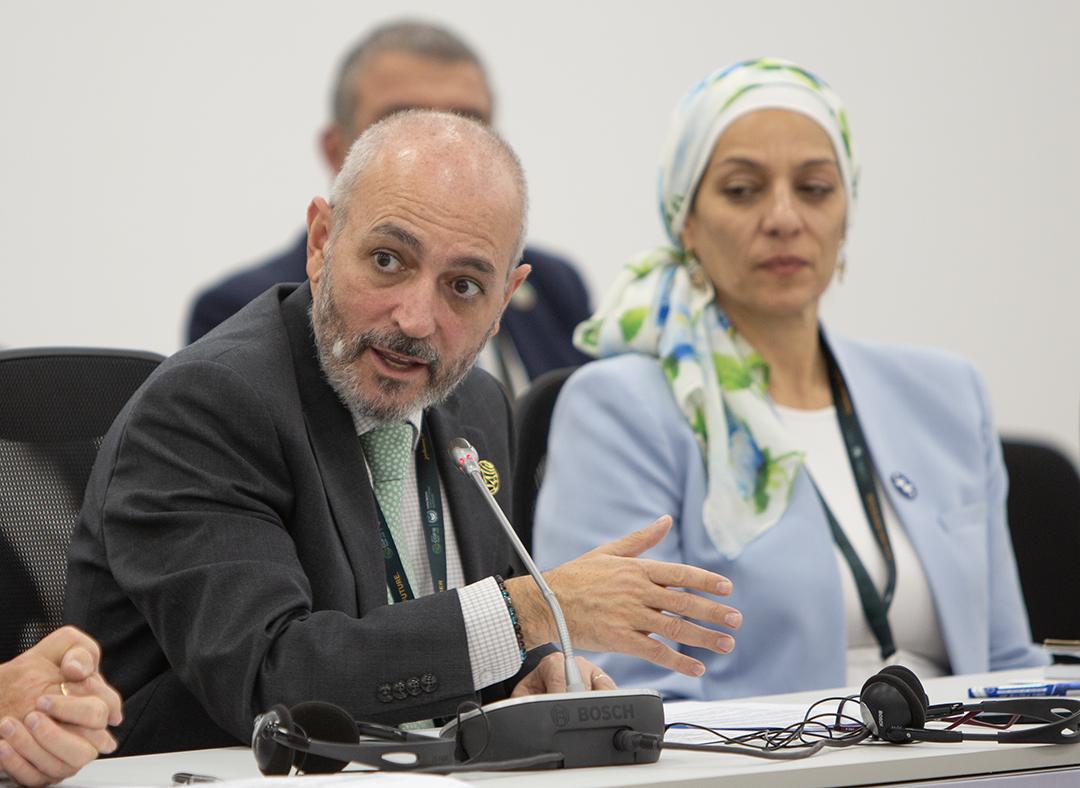
At the "Governance in Drylands: A Vision for a Just Land Transition" event, Marcos Neto, Director, Sustainable Finance Hub, UNDP, and Head, G20 Sustainable Finance Working Group Secretariat (pictured above) presented five key principles for effective land management: inclusivity, multi-level governance, anti-corruption, technology integration, and foresight. He highlighted the importance of utilizing existing G20 entities instead of creating new financial mechanisms or taskforces.
At a side-event on “Sustained Financing for Land Restoration” hosted by the National Agency for Water and Forests, Dr. Abdallah Al Dardari, UNDP Assistant Secretary General and Regional Director for the Arab States emphasized UNDP’s commitment to addressing rural poverty and financial protection gaps, highlighting three transformative initiatives—the Green Financing Platform, Takaful Islamic insurance, and wheat value chain development. Set to launch in early 2025, insurance will be integrated into the delivery of all three initiatives.
Financing and Empowering Youth Innovation for Sustainable Action
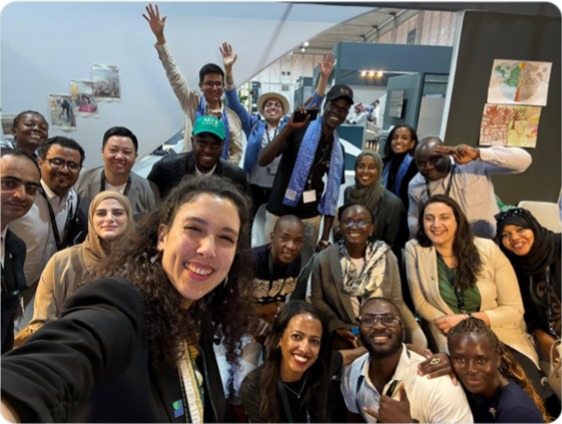
Youth4Climate supported the COP16 participation of 10 young innovators tackling land degradation, with each receiving $30,000. UNDP Insurance and Risk Finance Facility’s Jan Kellett reviewed and provided feedback on each remarkable solution, with a focus on helping each innovator consider business models for scale.
These young leaders from Cameroon, Uganda, Ghana, Peru, Vietnam, Kenya, State of Palestine, Colombia, and Ecuador are pioneering solutions for land restoration by leveraging digital tools, participatory models, and people-centered approaches to design. Find out more.
Relevant resources:
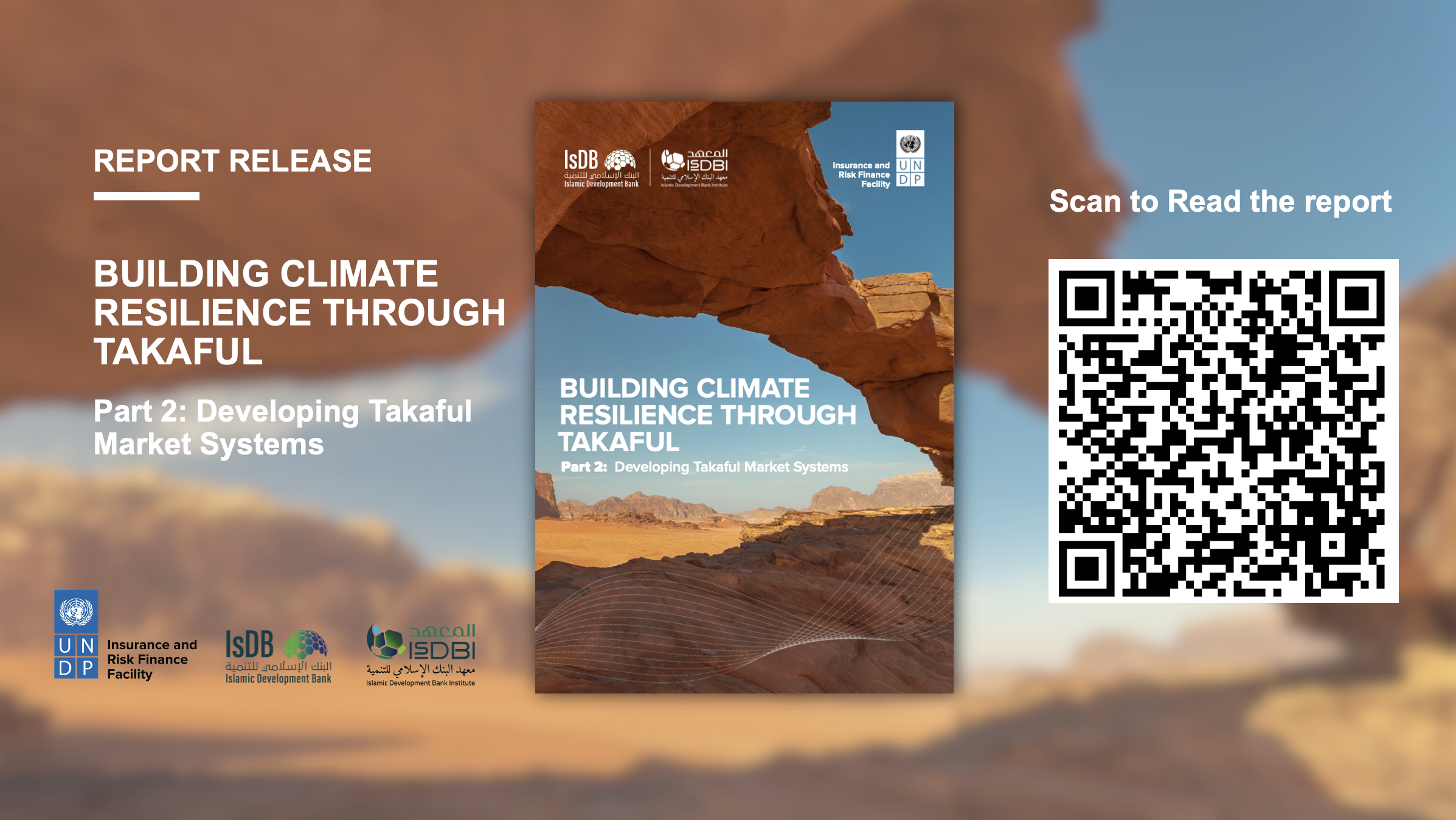
• ‘Building Climate Resilience Through Takaful. Part Two: Developing Takaful Market Systems’
• IsDB SDG Digest featuring an article authored by UNDP IRFF’s Jan Kellett (page 29) ‘Sustainability without Financial Resilience is not Sustainable: The Role of a Global Takaful Alliance’
• CNN interview with UNDP Administrator at COP16, on the importance of land management and the real cost of not practicing sustainable agriculture
• Stepping back from the precipice: Transforming land management to stay within planetary boundaries
“Never before have so many people been affected by land degradation and drought. 40 per cent of fertile land is now degraded. And the results are dire: rising inequalities, people hungry, people displaced. Livelihoods and businesses threatened, environments destroyed, and the foundation of peace, stability and security rocked. On the basis of current trends, by 2050, three in four people will be affected by drought worldwide.”
— Amina J. Mohammed , United Nations Deputy Secretary-General

